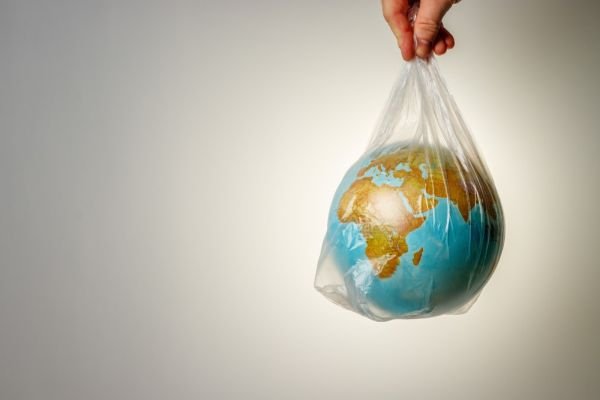Mass production of plastics started nearly 70 years ago and the production rate is expected to double over the next two decades. While serving many applications because of their durability, stability and low cost, plastics have deleterious effects on the environment.
Plastic is known to release a variety of chemicals during degradation, which has a negative impact on organisms and ecosystems.
Researchers from from the University of Hawai’i at Manoa School of Ocean and Earth Science and Technology (SOEST) have found that several greenhouse gases (GHG) are emitted as common plastics degrade in the environment.
Their study reports the unexpected discovery of the universal production of greenhouse gases methane and ethylene by the most common plastics when exposed to sunlight.
The science team tested polycarbonate, acrylic, polypropylene, polyethylene terephthalate, polystyrene, high-density polyethylene and low-density polyethylene (LDPE) — materials used to make food storage, textiles, construction materials, and various plastic goods.
Polyethylene, used in shopping bags, is the most produced and discarded synthetic polymer globally and was found to be the most prolific emitter of both gases.
Additionally, the team found that the emission rate of the gases from virgin pellets of LDPE increased during a 212-day experiment and that LDPE debris found in the ocean also emitted greenhouse gases when exposed to sunlight.
Once initiated by solar radiation, the emission of these gases continued even in the dark.
Plastic represents a source of climate-relevant trace gases that is expected to increase as more plastic is produced and accumulated in the environment. This source is not yet budgeted for when assessing global methane and ethylene cycles, and may be significant.
So now the work is on to develop estimates of the amount of plastic exposed to the environment in oceanic and terrestrial regions, globally, in order to constrain the overall greenhouse gas emissions from plastics.
Reference- University of Hawaii at Manoa, ScienceDaily
